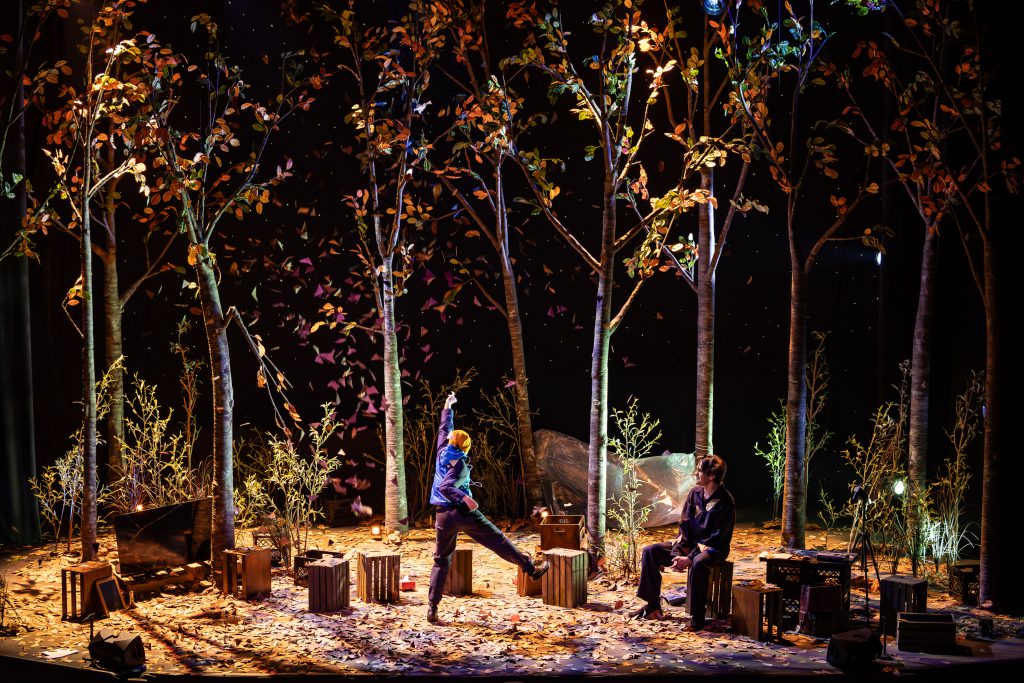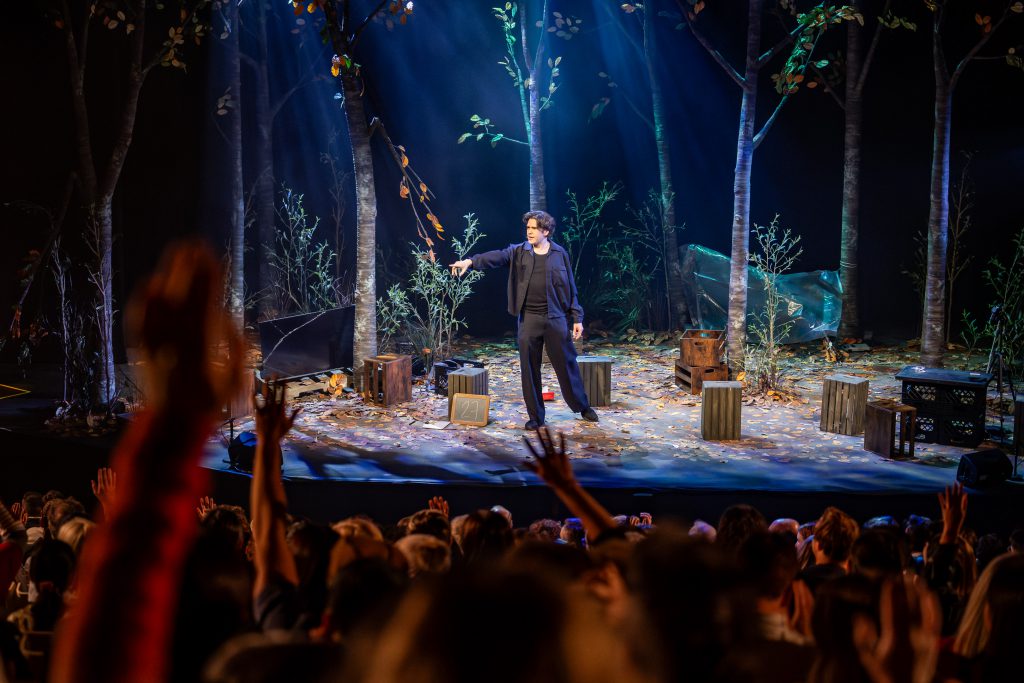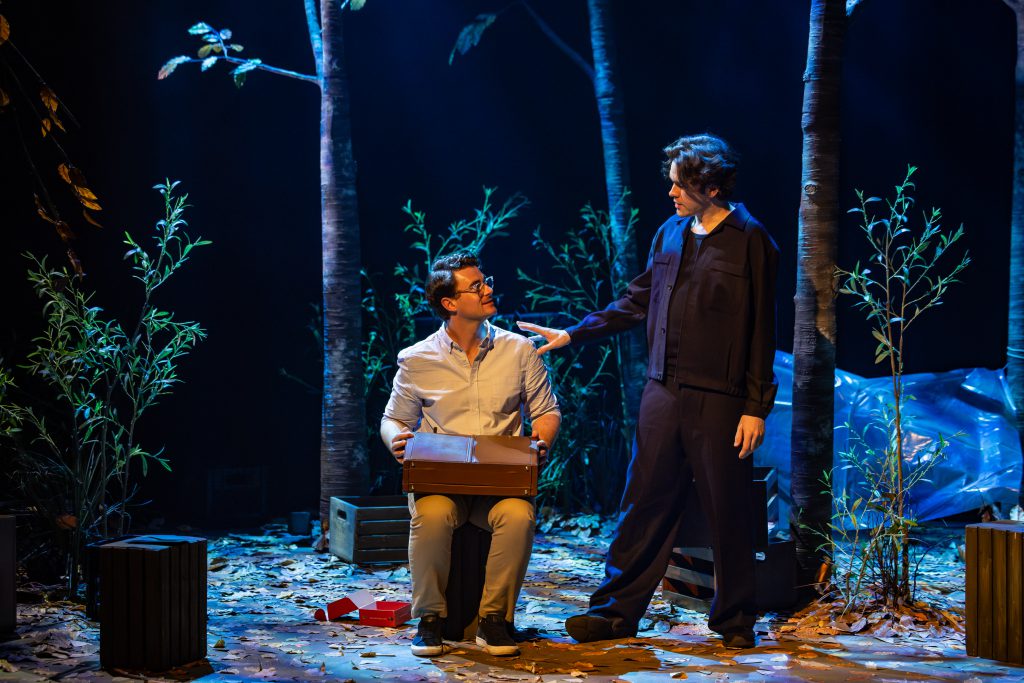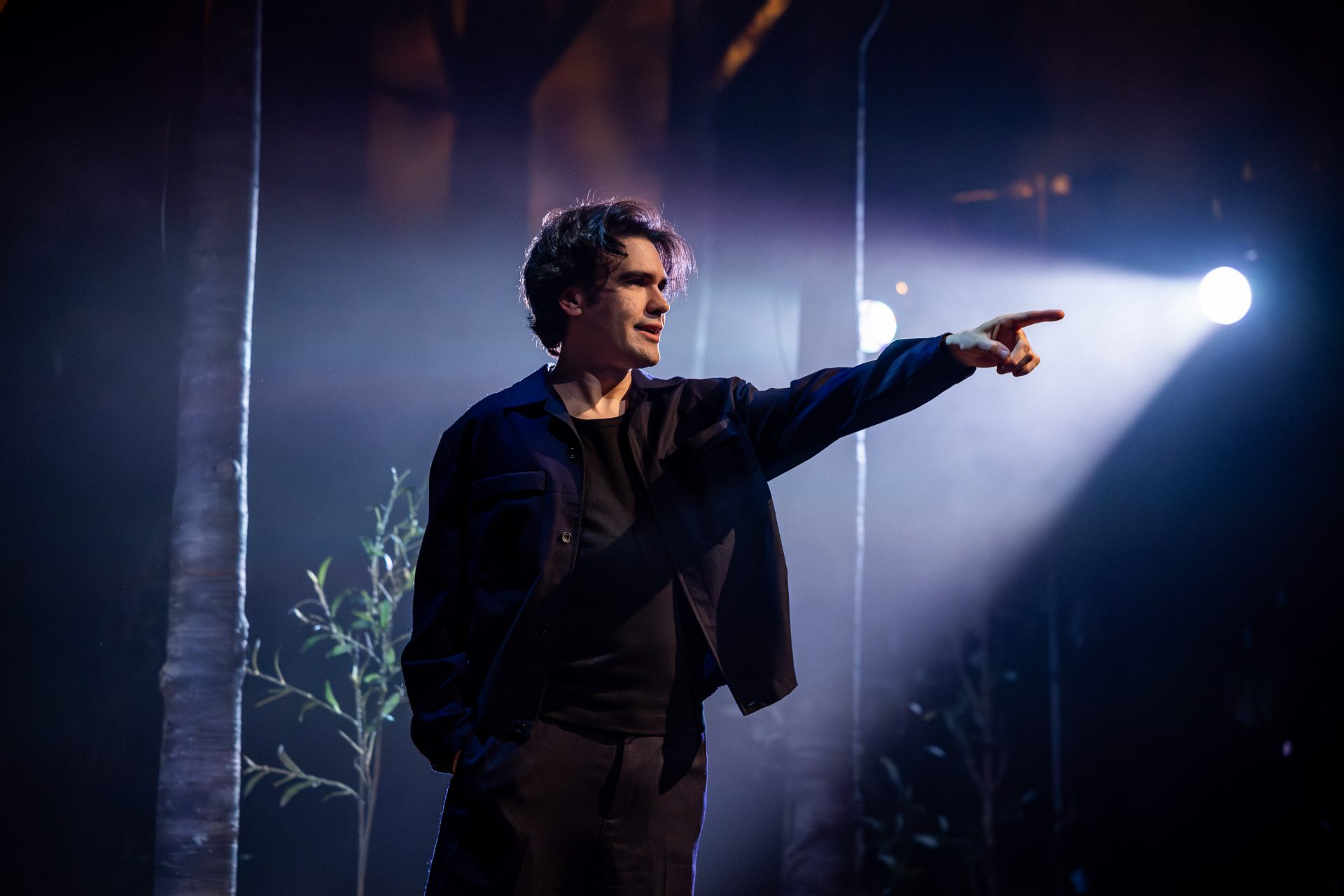A promising journey about reconnection complicated by competing motivations.
Scottish illusionist Scott Silven returns to the Sydney Opera House with a new set of magic tricks and mentalism. As the name of his show indicates, The Lost Things focuses on what’s not in our lives anymore, from objects to places to people. Though Silven’s attempt to blend audience interaction with storytelling in his performance is admirable, the show comes up short overall.

Scott Silven: The Lost Things starts off well. In the middle of a stage designed to look like a forest, with tall trees and a cute one-man tent, a young boy sits with an iPod. It’s the 2000s, and the then-new technology is a gift from the boy’s father. Following a brief voice-over, Silven emerges and shares that he received the same iPod from his late father. He invites the audience to think about something they’ve lost, and to note that thing on a slip of paper on their seats. Silven collects those slips, invites specific audience members to share their lost things, and the performance continues.
Silven succeeds in entertaining the audience with a charming stage presence. His performance is divided between magic tricks and telling stories about his upbringing, the things he has lost, and his journey of reconnecting with those things. His magic tricks almost always involve audience members, whom he warmly interacts with and whose shocked (and occasionally emotional) reactions are fun to watch. He delivers his anecdotes slowly and gently, letting the audience absorb every word before he moves to his next trick. The tricks and the stories are reasonably linked to each other, giving the show some structure.

Despite Silven’s personable nature, however, both the tricks and the stories wane. His mentalism starts to lose its impact halfway through the performance as the act of guessing someone’s thoughts or miraculously producing a specific item becomes routine. Also, Silven’s interactions with specific audience members mean that they are often more affected by his tricks than the whole audience (though there are a few exceptions to this, such as the aforementioned slips of paper or a trick featuring Maurice Sendak’s Where the Wild Things Are).
His stories offer the audience a more accessible emotional connection. He speaks so graciously about his father (despite his absence), so humorously about his mother, and so sadly about the people and things he has lost contact with. His musings on the potential inaccuracies and fickle nature of human memory are interesting. The recounts of his childhood birthday parties and how he views his life now are compelling. For that reason, he should have spent more time on these. After the opening, his stories act more like vignettes and segues to the next trick. This unfortunately limits their impact; Silven is such a good speaker, and clearly has so much more to say, but the structure of his show means he cannot capitalise on either. He seemingly must progress to the next trick.
Because of that, it ironically feels like the lost thing here is the chance to engage with Silven on a deeper, more profound level.

Ultimately, Scott Silven: The Lost Things does not take advantage of its inspiration. Its premise is clever and Silven is strong. But if the performance was more about him, and less about his magic, its potential would have been better realised.
